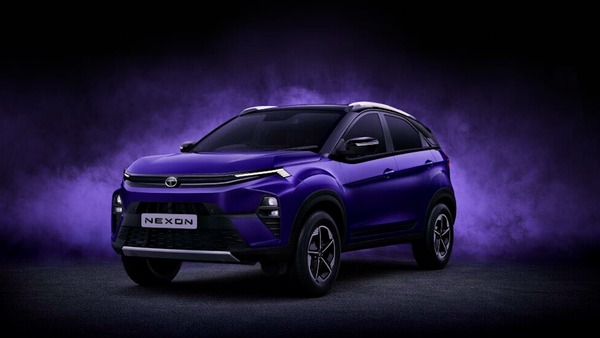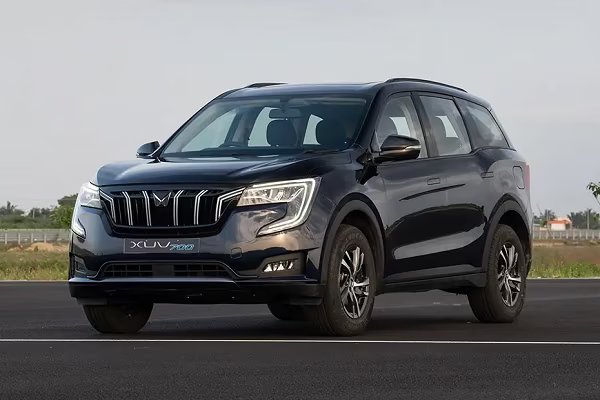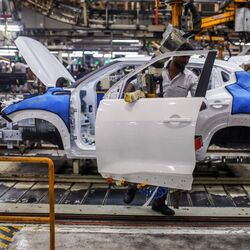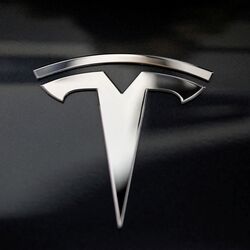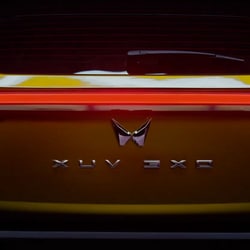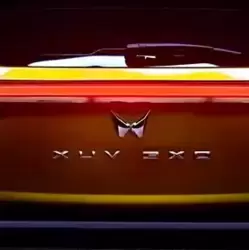How idled car factories super-charged a push for US chip subsidies
- For years, chip industry executives and US government officials have been concerned about the slow drift of costly chip factories to Taiwan and Korea.
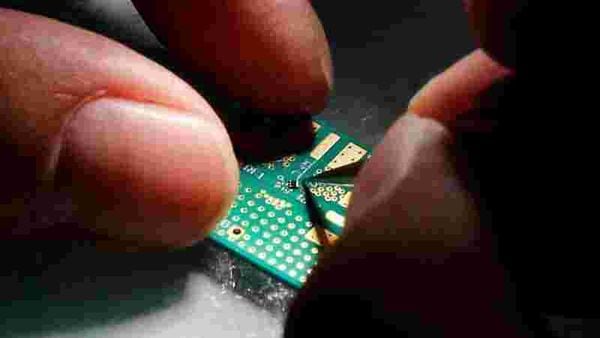
When President Joe Biden on Wednesday stood at a lectern holding a microchip and pledged to support $37 billion in federal subsidies for American semiconductor manufacturing, it marked a political breakthrough that happened much more quickly than industry insiders had expected.
For years, chip industry executives and US government officials have been concerned about the slow drift of costly chip factories to Taiwan and Korea. While major American companies such as Qualcomm Inc and Nvidia Corp dominate their fields, they depend on factories abroad to build the chips they design.
Trending Cars
As tensions with China heated up last year, US lawmakers authorized manufacturing subsidies as part of an annual military spending bill due to concerns that depending on foreign factories for advanced chips posed national security risks. Yet funding for the subsidies was not guaranteed.
Also Read : After chip shortage, Ford CEO calls for EV battery making in US to avoid dearth
Then came the auto-chip crunch. Ford Motor Co said a lack of chips could slash a fifth of its first-quarter production and General Motors Co cut output across North America.
"It brings home very clearly the message that the semiconductor is really a critical component in a lot of the end products we take for granted," said Mike Rosa, head of strategic and technical marketing for a group within semiconductor manufacturing toolmaker Applied Materials Inc that sells tools to automotive chip factories.
Within weeks, automakers joined chip companies calling for chip factory subsidies, and US Senate Majority Leader Chuck Schumer and President Biden both pledged to fight for funding.
Also Read : Toyota broke its just-in-time rule just in time for the chip shortage
Industry backers nowaim to be part of a package of legislation to counter China that Schumer hopes to bring to the Senate floor this spring. Still, all agree it will do little to solve the immediate auto-chip problem.
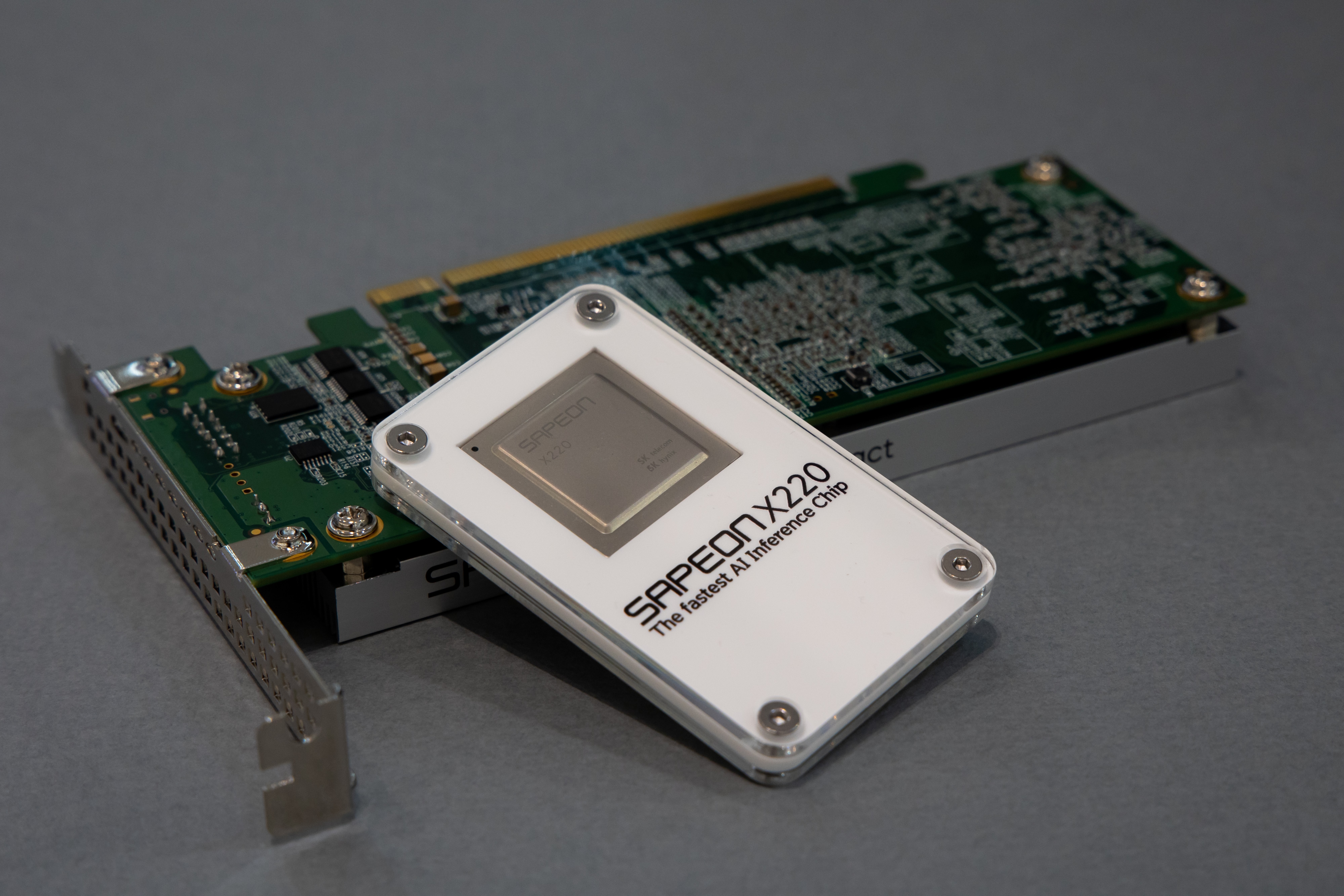

Headlines about idled car plants resonated with the public that had shrugged off abstract warnings in the past, said Jim Lewis, a senior fellow at the Center for Strategic and International Studies. Lawmakers, already worried that a promised infrastructure bill will not materialize this year, decided to push for quick solution.
"Nobody wants to be seen as soft on China. No one wants to tell the Ford workers in their district, 'Sorry, can't help,'" Lewis said. "It was one of those moments where everything aligned."
The package includes matching funds for state and local chip-plant subsidies, a provision likely to heat up competition among states including Texas and Arizona to host big new chip plants that can cost as much as $20 billion.
The subsidies could benefit a factory in Arizona proposed by Taiwan Semiconductor Manufacturing Co and one in Texas eyed by Samsung Electronics Co Ltd, even though those factories would be geared toward high-end chips for smartphones and laptops, rather than simpler auto chips. And those factories would not come on line until 2023 or 2024, according to plans disclosed by the companies, the world's two largest chip manufacturers.
In the longer term, a raft of US companies are also poised to benefit. Any chipmakers that build factories will source many tools from American companies such as Applied, Lam Research Corp and KLA Corp.
Intel Corp, Micron Technology Inc and GlobalFoundries - which already have US factory networks - will also likely benefit.
Smaller, specialty chip factories also could benefit.
“The recent chip shortage in the automotive industry has highlighted the need to strengthen the microelectronics supply chain in the US," said Thomas Sonderman, chief executive of SkyWater Technology, a Minnesota-based chipmaker that makes automotive and defense chips. "We believe that SkyWater is uniquely positioned due to our differentiated business model and status as a US- owned and US- operated pure play semiconductor contract manufacturer."
Even with subsidies, the US companies still must compete with low-cost Asian vendors over the long run, and the immediate auto chip troubles will probably persist.
Surya Iyer, a vice president at Minnesota-based Polar Semiconductor, which makes chips for automakers, said his factory is booked beyond capacity and has started to speed some orders up while slowing others down, to meet automakers' needs as best it can.
"We are expecting this level of demand to continue at least for the next 12 months, maybe even longer," he said.








 1497 cc
1497 cc Multiple
Multiple

